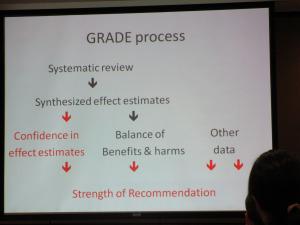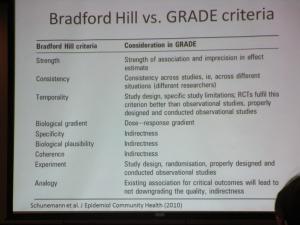The COCHRANE METHODS SYMPOSIUM 2014 held on Sunday 21st September 2014 at Hyderbad, India was themed “” “From concepts to evidence synthesis:Towards a research agenda for methods of public health systematic reviews “
Here is a list of some key points, quotes and slides I found interesting :
Liz Waters : Question right and match to the right evidence… Focus on evidence landscaping and realistic and narrative (but transparent) synthesis for public health reviews.
Daniel Francis: Logic Models help multi-disciplinary review teams to come together and explain relationships and improve the entire process, identify intervention components , understand rationale behind subgroup analyses and surrogate outcomes- all in a graphical manner.
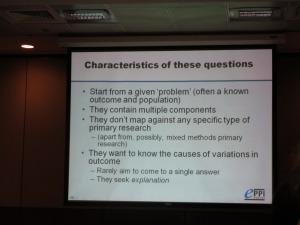
James Thomas : Mixed methods meta-analyses allow to empirically understand and explain variations observed- thus allowing contextualization .. Are complementary to traditional methods.
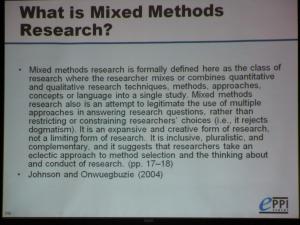
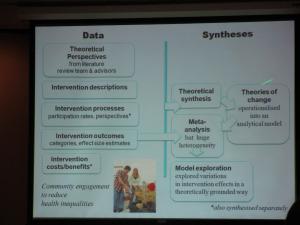
Rebecca Armstrong : Review Advisory groups have an important role and there is need to use them better. Time for Review Advisory Group 2.0 which would include critical friends and stress on web-based technologies and include training as well as link review authors with RAG members .
Ruth Turley : Capturing all relevant evidence with lease amount of noise is difficult in a public health systematic review. This is complicated by lack of standard terminology, reviews being not restricted to RCT, not indexation of studies and evidence being locked in select databases.
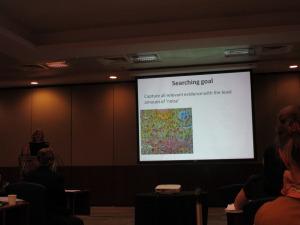
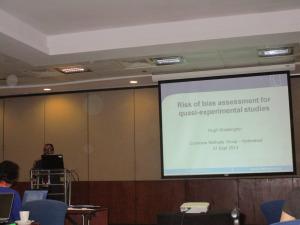
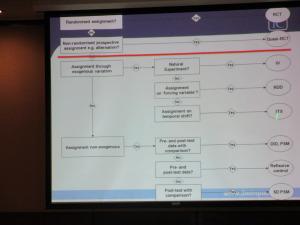
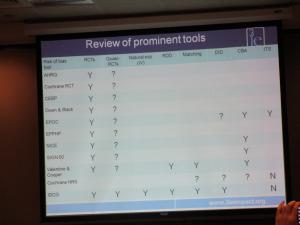
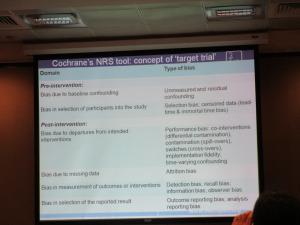
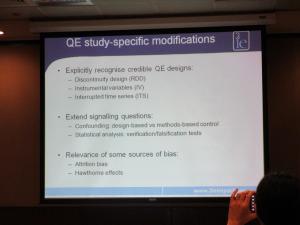
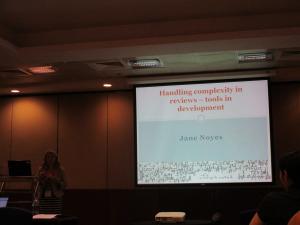
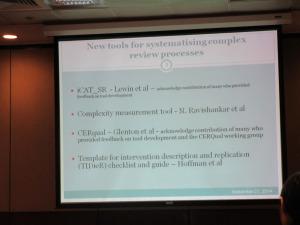
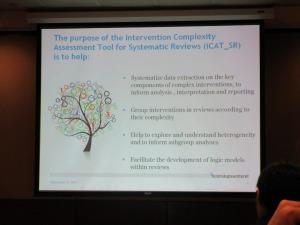
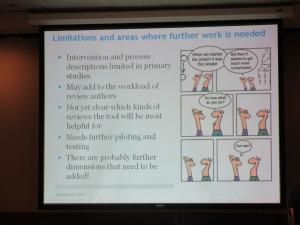
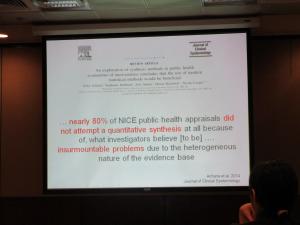
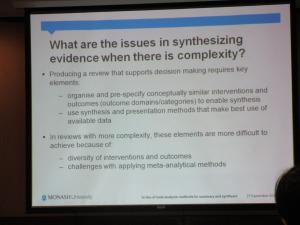
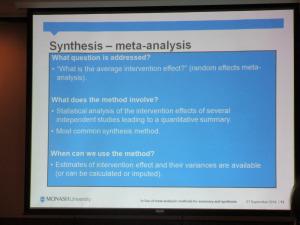
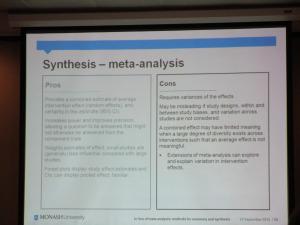

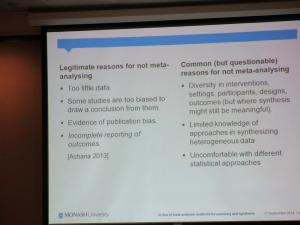
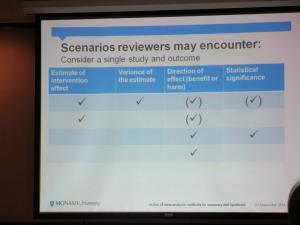
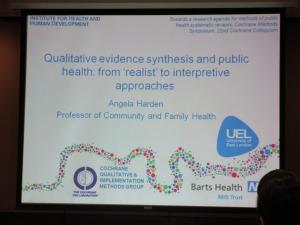
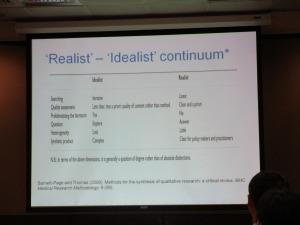
Elie Akl: The most positive thing about GRADE us that it is systematic transparent and explicit but there are concerns about choice of outcomes and outcome measurements and the fact that the process is solely dependent on epidemiological data and cannot be applied to narrative synthesis and does not discriminated between different types of observational studies.
